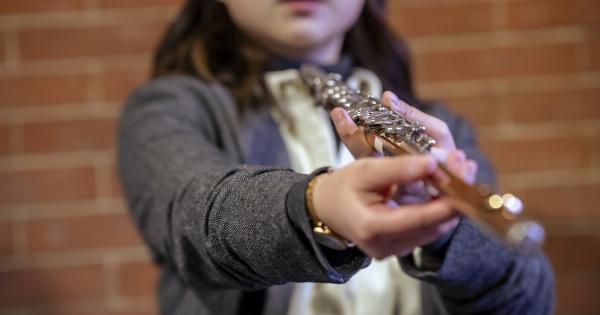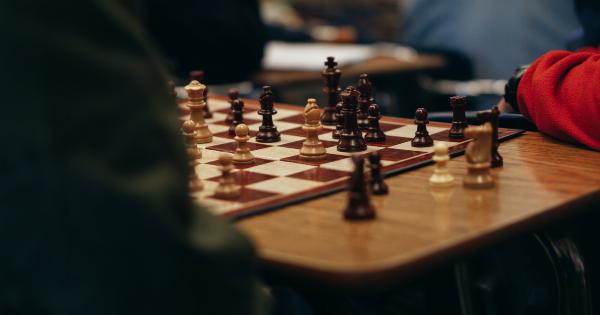Living freely and thinking wisely are two interconnected concepts that shape our lives and enable us to navigate through the challenges and opportunities that come our way.
In today’s fast-paced and ever-changing world, it becomes crucial to strike a balance between embracing our freedom and making wise decisions.
The Essence of Freedom
Freedom is a fundamental human right that allows individuals to express themselves, make choices, and pursue their dreams. It encompasses various aspects of life, including personal, political, social, and economic freedom.
Personal freedom pertains to the ability to make decisions about our own lives, while political freedom ensures our right to participate in the democratic process. Social freedom involves the freedom to express ourselves and associate with others, and economic freedom allows individuals to engage in trade and pursue economic activities of their choice.
Living freely means breaking free from the constraints that hold us back from exploring our potential and living a fulfilling life. It involves embracing our individuality, following our passions, and not being bound by societal norms or expectations.
When we live freely, we are open to new experiences, willing to take risks, and not afraid to face challenges. It is through this freedom that we can discover our true selves and lead a life that aligns with our values and aspirations.
The Power of Wise Thinking
While living freely is essential, it must be complemented by wise thinking to ensure that our actions have positive consequences.
Wise thinking involves using our intellect, knowledge, and experience to make informed decisions and solve problems effectively. It requires critical thinking, logical reasoning, and a comprehensive understanding of the situation at hand.
Wise thinking helps us consider the long-term implications of our choices, evaluate different perspectives, and weigh potential risks and benefits.
It allows us to make decisions that are aligned with our values, goals, and beliefs, while also having a positive impact on others and the world around us. Wise thinking ensures that we don’t make impulsive decisions driven by momentary desires, but rather consider the broader consequences and make choices that contribute to our overall well-being and personal growth.
The Art of Finding Balance
Living freely and thinking wisely may seem contradictory, but finding a balance between them is key to leading a meaningful and fulfilling life.
It is about nurturing our individuality and embracing our freedom while also being responsible for our choices and actions.
When we live too freely without considering the consequences, we may fall into a pattern of impulsiveness and recklessness.
On the other hand, if we focus solely on wise thinking without allowing ourselves to explore new possibilities and take risks, we may become trapped in a monotonous and uninspired existence.
Finding this balance requires self-reflection, mindfulness, and constant learning. It involves being aware of our beliefs, values, and aspirations, and aligning our actions with them.
It also means being open to feedback and continuously adapting our thinking based on new information and experiences. Striking this balance empowers us to live consciously, make wise choices, and embrace the opportunities that come our way.
Developing Freedom and Wise Thinking
Living freely and thinking wisely are qualities that can be developed and nurtured over time. Here are some strategies to cultivate these qualities:.
1. Self-Reflection:
Take the time to reflect on your beliefs, values, and goals. Understand what is truly important to you and evaluate how you can align your choices with these principles.
2. Embrace New Experiences:
Step out of your comfort zone and explore new opportunities. Engage in activities that challenge you and expose you to different perspectives and ideas.
3. Continuous Learning:
Never stop learning and expanding your knowledge. Read widely, listen to podcasts, attend seminars, and engage in intellectual conversations that stimulate critical thinking.
4. Seek Guidance:
Consult with mentors, seek advice from trusted individuals, and learn from their experiences. Their wisdom and insights can provide valuable perspectives to enhance your decision-making process.
5. Practice Mindfulness:
Cultivate mindfulness in your everyday life. Be fully present in the moment, observe your thoughts and emotions, and make choices consciously rather than on autopilot.
6. Consider Consequences:
Before making a decision, take the time to consider the potential consequences. Evaluate how your choice aligns with your values and goals, and its impact on those around you.
7. Embrace Failure:
See failure as an opportunity for growth and learning. When you encounter setbacks, analyze what went wrong, and use that knowledge to make better choices in the future.
8. Surround Yourself with Wise Thinkers:
Build a network of individuals who inspire you to think critically and make wise choices. Engage in meaningful discussions and learn from their diverse perspectives.
9. Take Responsibility:
Recognize that you are in control of your life and the choices you make. Take responsibility for your actions and their consequences, both positive and negative.
10. Practice Gratitude:
Cultivate gratitude for the freedom and opportunities you have. Focus on the positive aspects of your life and appreciate the journey, even in challenging times.
Final Thoughts
Living freely and thinking wisely go hand in hand, representing two sides of the same coin. It is through the combination of freedom and wise thinking that we can lead a purposeful and enriching life.
Embrace your freedom, explore new horizons, and make choices that align with your values and aspirations. At the same time, think wisely, consider the consequences of your actions, and learn from your experiences. When we live freely and think wisely, we tap into our fullest potential and create a meaningful impact on ourselves and the world around us.






























